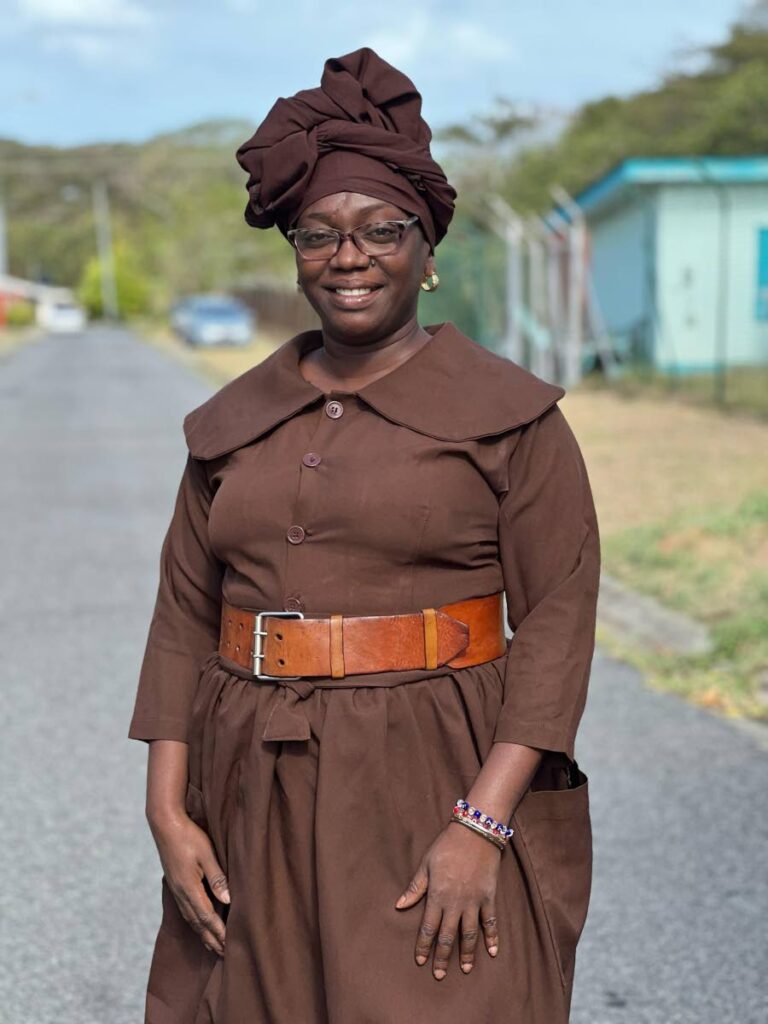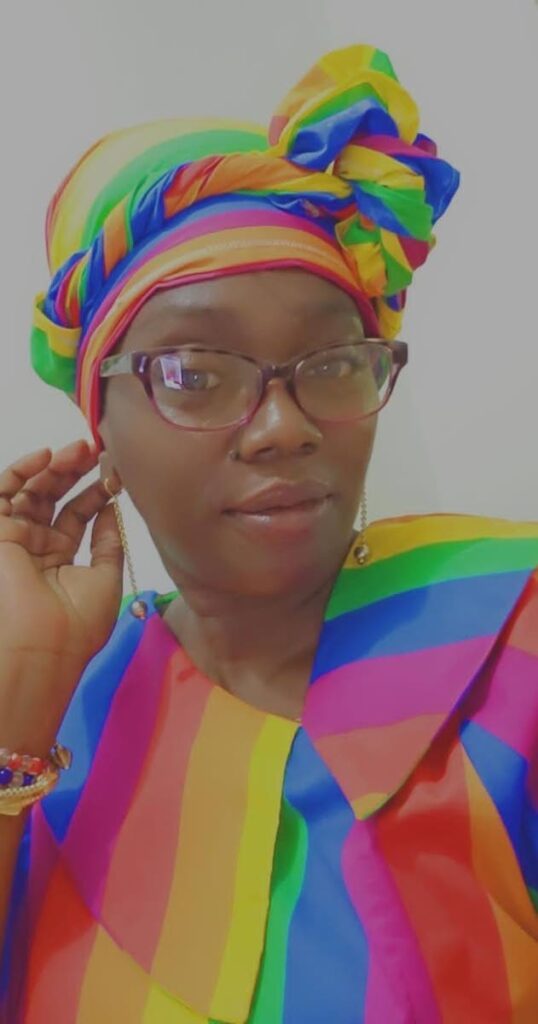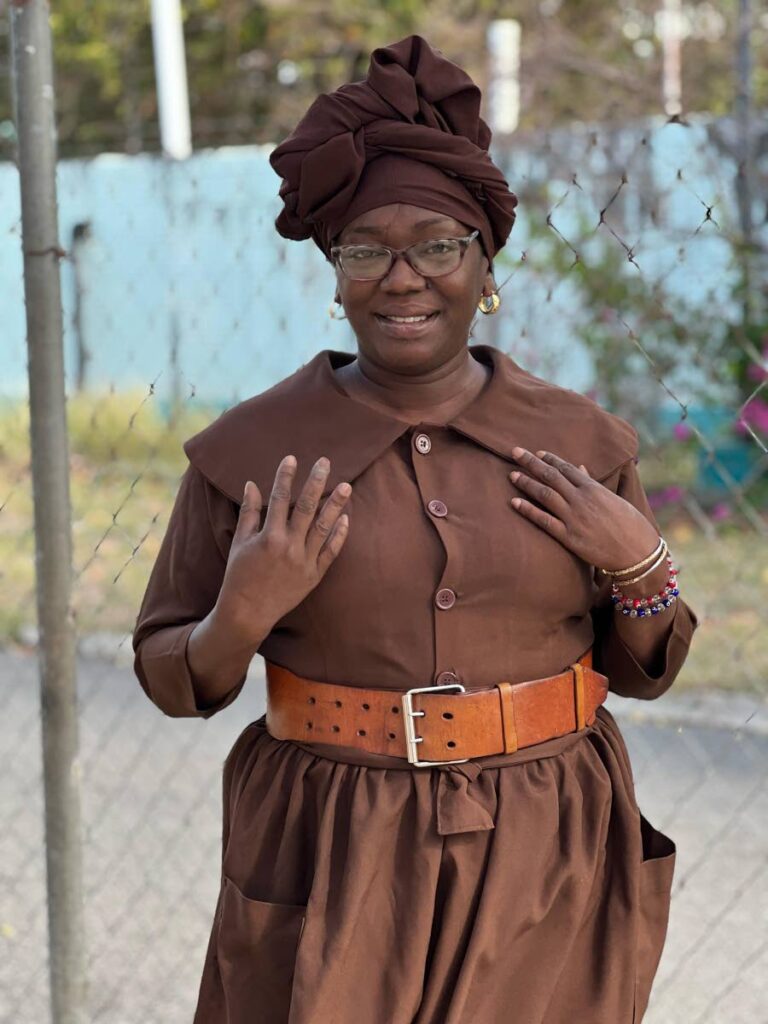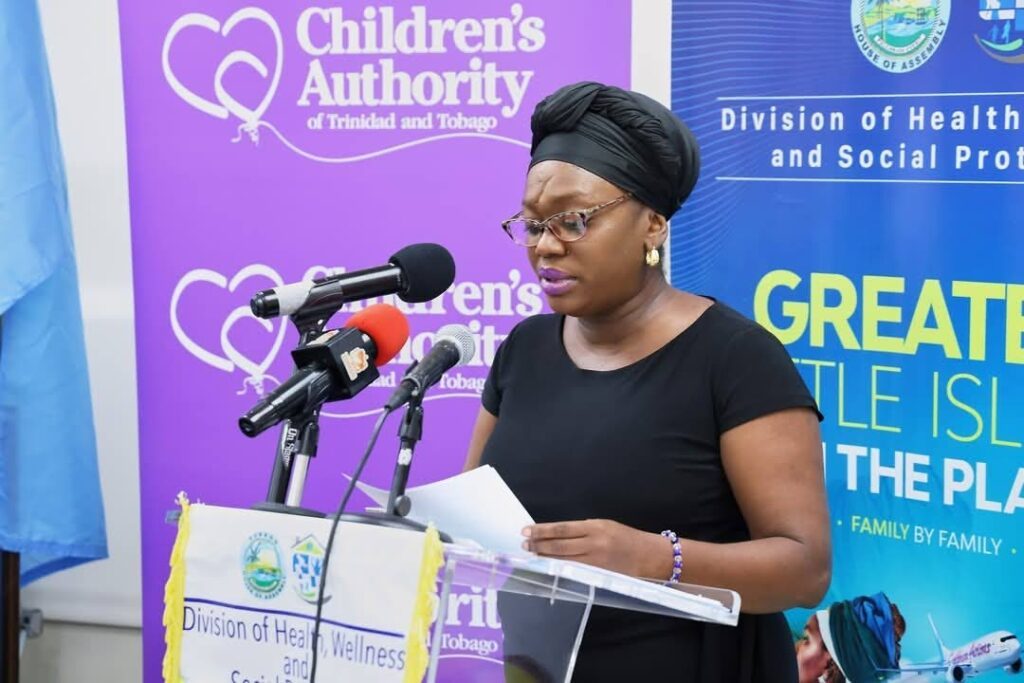Baptist faith a way of life for Iyana Phillips

IYANA PHILLIPS can attest to the ridicule and disdain that has bedevilled the Spiritual Baptist faith for decades.
She’s lived it.
And while she acknowledges that significant strides have been made by way of acceptance and respect, Phillips believes members of the faith are yet to embraced wholeheartedly.
“I have been profiled, singled out, falsely accused, slandered, reprimanded, demoralised and even dehumanised – not for being a Spiritual Baptist but for simply being perceived as one because I regularly wrap my hair,” she told WMN on March 25.
Phillips is a prominent member of the St Philomena Spiritual Baptist Church in Moriah, Tobago, a small but lively church that has been in existence for more than three decades.
Her parents, The Rev Fitzherbert Phillips and Bishop Mary Phillips, long-standing devotees, lead the congregation.
The church is part of the National Evangelical Spiritual Baptist Faith (NESBF), led by Archbishop Glenroy Jack.
As the country celebrates the 29th anniversary of Spiritual/Shouter Baptist Liberation Day being declared a public holiday in TT, Phillips lamented that more than 60 years after the repeal of the Shouter Prohibition Ordinance, which had prohibited Baptists from practising their traditions, discrimination against African spiritual denominations still “persists and exists.”
The former Bishop’s High School student observed, “Baptists, Shouters and Orishas still face prejudice for their style of worship, their attire and their rituals.”
Whether this changes or not, Phillips said, remains to be seen.

“But the battle has already been fought (alluding to the repeal of the Ordinance), we are free to worship. And as every Christian knows, when you serve God, trials and tribulations will surely come your way.”
At St Philomena, Phillips is sometimes called “Mother,” while other members refer to her as “Matron.”
But she said she does not ascribe to titles.
“I am simply a child of the Most High God. In the church, there are different ‘Mothers,’ and sometimes a ‘head Mother.’ But for me, a true Mother is the one who bears the burden of the church and the weight of her spiritual children. She carries the fellowship on her back and shoulders, standing in the gap when needed.”
Phillips, who has been a devoted member of the church for about 20 years, said many people outside of the faith have superficial notions about the title.
“Many of them think that a ‘Mother’ is just the woman with the biggest head wrap, the widest belt or the prettiest frock. However, when the labourers are few, the ‘Mother’ must stand the grind by making interventions – cleaning the church, nursing mourners and helping them along their journey.”
But for her, “A ‘Mother’ in the church prays for and with the congregation, offering wisdom, encouragement and support, especially to the younger generation. She leads by example, walking in faith through reverence, humility, and unwavering trust in God.”
Phillips said, though, a ‘Mother’ does not know everything and must be willing to accept advice.
“I am truly blessed to have a ‘Mother’ who believes in teaching and explaining so that we can operate in our full capacity on any battlefield. That, to me, is the essence of true spiritual motherhood.”
Over the years, the communications professional has used her talent as an artist to enhance the church’s ministry.
“I am a spoken word artist, performance poet, writer, and slam poet. So creativity is at the core of who I am.”
Last year, Phillips wrote and performed a spoken word tribute to the late prime minister Basdeo Panday for the Spiritual Baptist Liberation Day celebrations in Tobago, “recognising his contributions to the religious freedom we enjoy today.
“The piece was well received and performed both in Tobago and in Trinidad.”

She also crafts pieces for the church’s special events, blending spoken word with the rich traditions of the faith.
“I incorporate trumpets and sankeys (short choruses) into my performances, delivering not just poetry but an immersive experience that resonates deeply with the congregation.”
Phillips grew up as a Roman Catholic but attended Spiritual Baptist thanksgivings in her youth.
She told WMN, “I was immediately drawn to the richness of the worship – the powerful prayers, rhythmic singing and heartfelt testimonies that created an atmosphere overflowing with the presence of God and the Holy Spirit. There was a profound sense of reverence and resilience in every service.”
Phillips said she truly felt the power of the faith during some of the lowest moments in her life.
“In those times, it became more than just a place of worship – it became a source of strength, a present help when I needed it most.
“What stood out to me most was the unwavering resilience of the faith. Behind every ritual and practice, I could feel the history of struggle and triumph, as though the spirit of those who fought for our freedom still moved within every act of worship.
“It became clear to me that the Spiritual Baptist faith is not just a religion – it is a way of life, a living testament to endurance, faith and the power of belief.”
Phillips said while St Philomena’s membership “may number in the hundreds, in terms of regular attendance, we are a small yet mighty congregation.
“At St Philomena, we do not measure strength by numbers. Rather, we stand firm in the belief that where even one or two are gathered, Jesus is present to bless.”
She believes the Baptist faith in Tobago is growing but like many other religious groups, it faces challenges in keeping the younger generation engaged.

“There is a deep cultural and spiritual richness in the faith that continues to attract people, especially those seeking a more personal and expressive connection with God.
“Young people are drawn to authenticity, and the Spiritual Baptist faith offers that through its vibrant worship, powerful testimonies, and strong sense of community. However, maintaining that interest requires effort, ensuring that they understand the history, significance and relevance of the faith in their daily lives.”
Phillips said while some may gravitate to what she considers to be “more modern expressions of spirituality,” she believes there is still a strong foundation that keeps many rooted in the traditions of the faith.
“As long as we continue to teach, embrace and make space for them, the next generation will carry the torch forward. If you look at some of the digital platforms, tiktok for example, you have youths and teenagers who are creating Spiritual Baptist content. So we are meeting the youths.”
Phillips said the Baptist faith in Tobago has its strengths and challenges.
She said despite fervent calls or unity among the various sects over the years, the dream remains elusive.
“One of the key shortcomings I see is the need for greater unity and collaboration among different Spiritual Baptist churches. While we all share the same foundation of faith, there are times when divisions – whether in leadership, doctrine, or traditions – hinder our collective progress.”
Phillips believes a stronger sense of togetherness would allow Baptists to amplify their voices, preserve their traditions and better support the next generation.
The lack of documentation and structured mentorship is also a concern, she said.
“The faith is rich in history but much of it remains oral, passed down through experience rather than formal teachings. Ensuring that our knowledge, traditions, and spiritual disciplines are properly recorded and taught will strengthen the faith for years to come.”
Phillips said the church also must review how it treats with young people.
She said while many youths are either drawn naturally to the faith for its “spiritual depth or when trouble reach their doorstep,” the church must find more ways to make its teachings, history and practices accessible and relevant to them.
“If we do not actively involve and empower the youth, we risk losing future generations to other influences.”
She said despite these challenges, the resilience of the Baptist church is undeniable.
“As the sankey goes, ‘We shout last night, we shout the night before and if we shout tomorrow night, we will shout forever more.’ That the reason why this faith will never die, because the young ones must come before the old ones die.”
Asked how she sees the Baptist faith, today, Phillips said, “For me, it is more than just a religion. It is a way of life, an everyday practice of faith, devotion and gratitude. It is in the way I pray, the way I carry myself and the way I honour the sacrifices of those who came before me.
“It’s about showing reverence not only in moments of worship but also in every aspect of my life, acknowledging the Saints of God and, above all, Jesus, the head of my life.”
She said the faith has shaped her, “offering strength in difficult times and guiding me with its unwavering truth.
“It is alive, evolving and deeply rooted in resilience and spiritual freedom. No matter the challenges, it remains a powerful force, one that continues to inspire, uplift and sustain those who walk this path. Because on Jesus, the solid rock I stand, all other ground is sinking sand.”
On this Liberation Day observance, Phillips wants Baptists in Tobago to “continue to walk boldly in their faith, embracing the hard-won freedom secured by those who came before us.”
She continued, “May we honour their legacy by standing firm in our beliefs, uplifting one another and fostering a spirit of unity and respect for all expressions of worship.”
Phillips said while Baptists may not all be under the same umbrella, “Baptists know Baptists. Let this day serve as a powerful reminder that despite challenges, our faith remains unshaken and our voices must be heard in as many spaces as possible.”

Comments
"Baptist faith a way of life for Iyana Phillips"